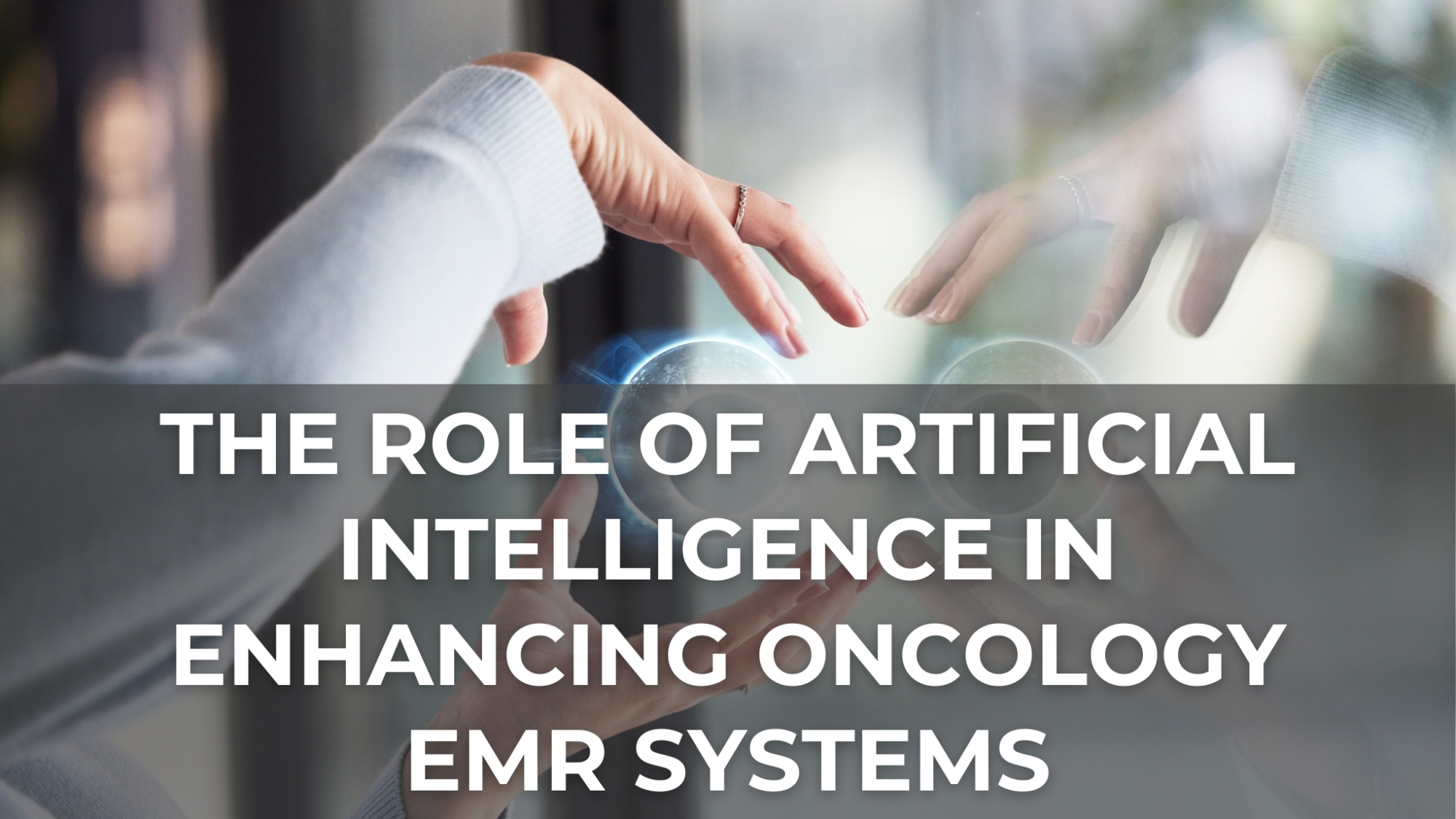In the rapidly evolving landscape of oncology care, the integration of Artificial Intelligence (AI) into Electronic Medical Record (EMR) systems is revolutionizing how healthcare providers diagnose, treat, and manage cancer patients. AI holds the promise of improving efficiency, accuracy, and personalized care delivery. This blog delves into the transformative role of AI in enhancing Oncology EMR systems, exploring its applications, benefits, and future implications.
Understanding AI in Oncology EMR:
AI encompasses various technologies such as machine learning, natural language processing, and computer vision, which enable computers to mimic human intelligence and perform tasks that traditionally require human cognition. In Oncology EMR systems, AI algorithms analyze vast amounts of patient data, including medical records, imaging scans, genomic profiles, and treatment histories, to extract meaningful insights and support clinical decision-making.
Applications of AI in Oncology EMR:
- Clinical Decision Support: AI-powered algorithms provide evidence-based recommendations to oncologists regarding diagnosis, treatment planning, and therapy selection, considering factors such as tumor characteristics, genetic markers, and patient preferences.
- Image Analysis: AI enhances the interpretation of medical images (e.g., MRI, CT scans) by detecting subtle abnormalities, quantifying tumor size and progression, and assisting radiologists in identifying relevant features for diagnosis and treatment monitoring.
- Predictive Analytics: By analyzing historical patient data, AI models can predict disease progression, treatment response, and potential complications, enabling proactive interventions and personalized care pathways.
- Natural Language Processing (NLP): NLP algorithms extract structured information from unstructured clinical notes, pathology reports, and research articles, facilitating data mining, retrospective studies, and real-time surveillance of oncological trends and outcomes.
- Genomic Analysis: AI algorithms analyze genomic data to identify biomarkers, genetic mutations, and therapeutic targets, guiding precision medicine approaches and personalized treatment strategies tailored to individual patients.
Benefits of AI in Oncology EMR:
- Enhanced Clinical Decision-making: AI augments oncologists’ expertise by providing timely, data-driven insights, reducing diagnostic errors, and optimizing treatment decisions based on evidence-based guidelines and real-world evidence.
- Efficiency and Productivity: AI automates routine tasks such as data entry, documentation, and administrative workflows, allowing healthcare providers to focus more on patient care, research, and innovation.
- Improved Patient Outcomes: By enabling early detection, personalized treatment planning, and continuous monitoring, AI contributes to improved survival rates, reduced complications, and enhanced quality of life for cancer patients.
- Research and Innovation: AI-powered Oncology EMR systems facilitate data sharing, collaboration, and knowledge exchange among researchers, accelerating the discovery of new therapies, prognostic markers, and treatment modalities.
Future Implications and Challenges:
While AI holds immense potential in enhancing Oncology EMR systems, several challenges need to be addressed, including data privacy concerns, algorithm bias, regulatory compliance, and integration with existing healthcare infrastructure. Moreover, the successful implementation of AI depends on interdisciplinary collaboration, clinician engagement, and ongoing evaluation of AI algorithms’ performance and impact on patient care.
Conclusion:
Artificial Intelligence is reshaping the landscape of Oncology EMR systems, offering unprecedented opportunities to improve clinical outcomes, streamline workflows, and advance cancer care. By harnessing the power of AI-driven insights, healthcare providers can deliver more precise, personalized, and effective treatments, ultimately transforming the way we diagnose, treat, and conquer cancer.


